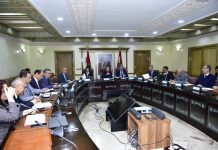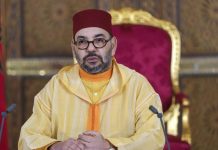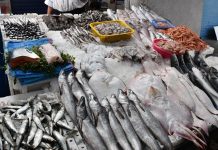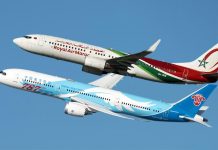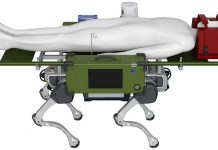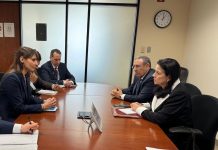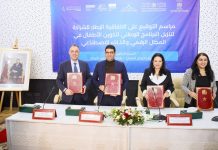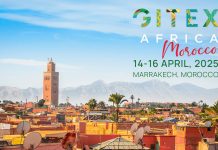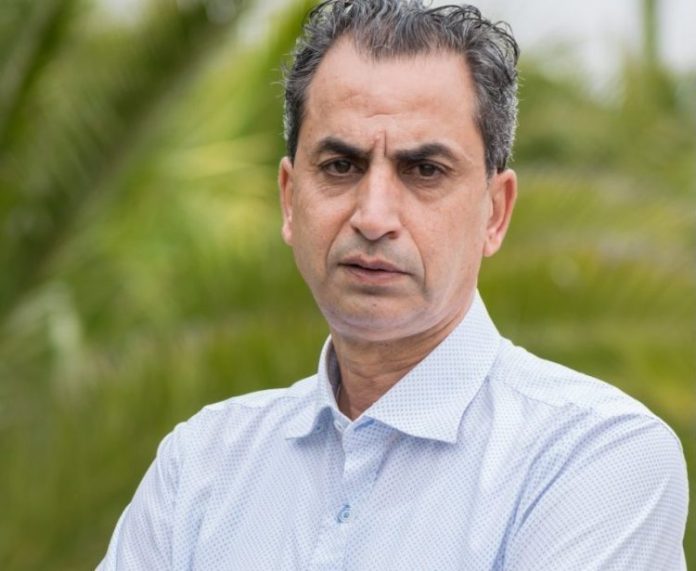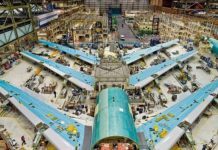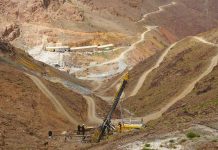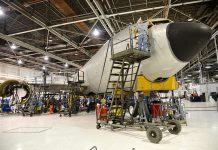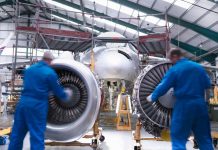The excellent economic relations between Morocco and France are entering a new era of collaboration that encompasses all sectors, while prioritizing green, digital, and innovative technologies. This partnership also respects the mutually agreed choices, particularly the model of economic sovereignty advocated by Morocco. In a few lines, this is the analysis provided by Abdelghani Youmni, a Doctor of Economics and specialist in Franco-Moroccan relations, regarding the state of these relations, which have always prevailed beyond changing circumstances.
How would you describe the current state of economic relations between Morocco and France, considering the industrial dynamics that Morocco has experienced in recent years?
Morocco and France are linked by a strategic partnership. The economic relations reflect these ties. They are robust and bolstered by the exceptional success of macroeconomic and financial reforms, as well as Morocco’s commitment to the necessary energy transition. Paradoxically, they are also influenced by the advanced status agreement between Morocco and the European Union, as well as the disruptions experienced in global value chains following the Covid-19 pandemic.
Between Morocco and France, diplomatic time has always been nourished by economic time, as Bruno Le Maire points out: « A policy without an economy is like an engine without fuel, » highlighting the importance of pragmatism.
Currently, the economic relations between the two countries are excellent and have always been so. Trade exchanges reached 14 billion euros, and according to French customs, Moroccan exports increased by 112% compared to imports between 2012 and 2022. Morocco recorded a surplus of 0.5 billion euros, with a wide diversification of Moroccan products, including agricultural goods, agri-food, the automotive and aerospace industries, and textiles. This trend can be attributed to the strengthening of Moroccan industrial ecosystems, the integration rate of these industries, and the re-exportation of French automotive companies to France.
Let’s not forget that Morocco is France’s top partner in Africa, with a stock of French Foreign Direct Investment (FDI) amounting to 8.4 billion euros. This figure is expected to increase thanks to projects in civil nuclear energy, solar energy, and green hydrogen. Meanwhile, Morocco is the largest African investor in France, with an investment of over 1.8 billion euros.
If the renewal and development of exchanges seem to align with a shared vision of co-industrialization, co-investment, skill mobility, and technology transfer, this new era perfectly integrates the Mediterranean, African, and Atlantic dimensions of the Kingdom, solidifying its status as an essential partner in the multipolar geoeconomic landscape.
Do you see a renewal of Franco-Moroccan economic relations, and if so, what are the main drivers?
It’s important to understand that the strengthening of Moroccan industrial ecosystems, the reorganization of global value chains to capture more added value based on green investment, geographical proximity, and environmental, social, and governance (ESG) criteria all contribute to making Morocco an even more exceptional partner for France and other countries, endowed with multiple comparative advantages.
Yes, there is indeed a renewal of Franco-Moroccan economic relations, driven by several key factors: energy transition and sustainable development, economic diversification and industrialization, a doubling of the urbanization rate over 20 years, technology and digital innovation, education and vocational training, along with the royal initiative to build a social state.
The main drivers of this renewal are the geopolitical and geoeconomic upheavals in the world, the pressures of climate change, reversed demographic transitions on both sides of the Mediterranean, and the upcoming migration pressures.
In Europe, the war in Ukraine and the economic weakening of Germany support the idea of strengthening economic relations with the Mediterranean and Africa. Political time has the capacity to guide economic time toward building a common future to overcome the past.
Finally, bilateral agreements and institutional cooperation play a crucial role in strengthening economic relations. Morocco’s advanced status with the European Union facilitates trade and investment. Regular, open, and straightforward meetings between political and economic leaders from both countries contribute to establishing strategic partnerships.
See Also|Interview with Amal El Fallah Seghrouchni : The Challenges and Opportunities of AI in Morocco
What are the priority investment sectors for French companies in Morocco, and how have these investment choices evolved recently?
Revisiting the paradigms of Foreign Direct Investment (FDI) is crucial for the future of Morocco and Africa, and vital for France and Europe. A win-win partnership is the only viable path. Today, relocations based on cost arbitration, purchasing power parity, taxation, and monetary dumping are obsolete. Furthermore, exports and re-exports that do not integrate technology transfer and carbon footprint considerations jeopardize the planet’s future and demographic balances between continents.
All sectors are eligible for cooperation between France and Morocco, particularly textiles, agri-food, industrial manufacturing, mobility and logistics industries, digital technologies, and civil nuclear energy.
The priority investment sectors for French companies in Morocco have evolved over the years, reflecting the country’s economic and strategic changes. Key sectors include the automotive industry (both thermal and electric), aerospace, and infrastructure and construction (rail and port).
However, French investments in Morocco are diversifying beyond traditional sectors. There is a growing interest in green technology, the digital economy, and innovative startups.
Continuity also means consolidating bilateral agreements and economic cooperation between France and Morocco, which facilitate investment conditions and provide increased legal protections for investors. French companies are adapting their strategies to align their investments with Morocco’s national priorities, such as energy transition and sustainable development.
How is France responding to Morocco’s economic sovereignty choices? Is it aligned with this new vision, and if so, how does this manifest in joint economic projects?
Sovereignty is at the core of His Majesty King Mohammed VI’s concerns; it is not singular but plural. It is not focused but systemic. The health crisis revealed the fragility of several countries and their dependencies on the Chinese factory, Indian pharmaceuticals, or Russian or Ukrainian agriculture.
Reiterating this point, deindustrialization has resulted in the loss of 2.2 million jobs, the destruction of industrial basins and entire regions, and a decrease in industrial GDP from 23% to 10%, shifting the country from an export-driven economy to one reliant on imports. France fully understands Morocco’s sense of economic sovereignty. It is also France’s strategy to extricate itself from dependence on emerging Asian markets and to build niches of co-industrialization and co-investment within its neighborhood. This is the path to shared prosperity.
Thus, it is undeniable that France is positively responding to Morocco’s economic sovereignty choices. For 24 years, Morocco has demonstrated its ambition to diversify partnerships and build true win-win cooperation in sub-Saharan Africa and with all African countries. France seems increasingly aligned with Morocco in this new vision that transcends merely the foundational elements of the French language and culture.
This cooperation could materialize through joint economic initiatives and projects known as triangulation, demonstrating a shared commitment to strengthen economic ties and promote a sustainable, mutually beneficial partnership in terms of economy, culture, and the mobility of skills, artists, scientists, and transformed goods and services, alongside productive investments.
This interview was originally published in Industrie du Maroc No. 83 – June 2024, under the title: Dr. A. Youmni on Morocco-France Relations: “Sovereignty is the Path to Shared Prosperity.”



